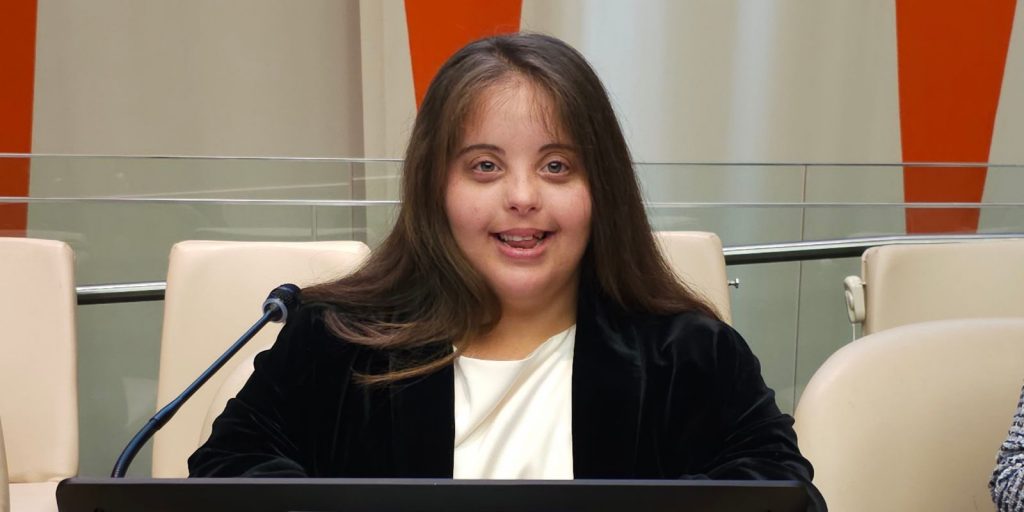
Advocacy and human rights
What are human rights?
People with Down syndrome have the same human rights as everyone else.
Human rights are the basic rights and freedoms that belong to every person in the world, from birth until death. They apply regardless of where you are from, what you believe, or how you choose to live your life.


Human rights can never be taken away, although they can sometimes be restricted – for example if a person breaks the law, or in the interests of national security.
These basic rights are based on shared values like dignity, fairness, equality, respect, and independence. These values are defined and protected by law.
Convention on the Rights of Persons with Disabilities.
The Convention on the Rights of Persons with Disabilities (CRPD) is an international legal agreement. It exists to protect and promote the human rights of people with disabilities.
An easy-read version of the CRPD is available here:
The CRPD was adopted because existing human rights conventions were not being used to protect the rights of people with disabilities.
People with disabilities were still being denied their rights and were being excluded from society.
The Convention sets out the legal obligations of countries that have signed it to promote and protect the rights of people with disabilities.
Self-advocacy.
Self-advocacy is the ability to speak up for yourself and the things that are important to you. This means being able to ask for what you need and want, and telling people about your thoughts and feelings. It also means knowing your rights and responsibilities, and being able to make choices and decisions that affect your life.
The goal of self-advocacy is to be able to make your own decisions and take control of your life. This doesn’t mean that you can’t get help if you need it, but it does mean that you are the one who is making the choices and you are responsible for the consequences of those choices.


When you have good self-advocacy skills you can have more control and make the life decisions that are best for you.
Self-advocacy helps to empower you, to speak up for yourself and make decisions about your life.
People with Down syndrome may need the support of advocates to become effective self-advocates.
The DSi network works with self-advocates with Down syndrome from around the world to learn about their lives and determine the best way to offer them support.
Advocacy.
Advocacy is when you speak up for or act on behalf of someone else. Advocacy can mean working to resolve an issue, get needed support, or promote a change in practices or policies that affect people with Down syndrome.
Advocacy is essential for promoting and protecting the rights of people with Down syndrome. It can help to ensure that people with Down syndrome have access to the same opportunities as everyone else and that they are treated with dignity and respect.
Individuals and organisations can be advocates for people with Down syndrome.


The DSi network works with advocates from around the world to share knowledge and offer information, advice, and support.
We work together to advocate for the human rights of people with Down syndrome.
Our vision is a better world where all people with Down syndrome are fully included in society.
Our advocacy work is focused on 4 key issues that we believe need the most attention:

Inclusive organisations
We advocate for organisations to be inclusive of people with intellectual disabilities.

Inclusive health
We advocate for everyone to enjoy the highest attainable standard of health, without discrimination.

Inclusive education
We advocate for every child to have access to inclusive and equitable quality education.

Inclusive employment
We advocate for everyone to have access to employment in open, inclusive and accessible workplaces.


